|
There are a few guarantees in this life. Some say it is death and taxes. Purdue basketball fans, such as myself, will add Matt Painter. But there is another guarantee in life, and it is one that is as uncomfortable and taboo as death: suffering. Death, taxes, Matt Painter, and suffering. The suffering we think of most often is typically connected to death - the suffering of a cancer patient or of someone who has been in a tragic accident. This suffering is very real, but also extraordinary. I do not mean that this suffering is somehow alien to the human experience; it is deeply real and personal to those who experience it and their loved ones, but that it is truly extra (outside of the) ordinary. Ordinary suffering comes in many forms: the lack of sleep felt by new parents, the inability to pay one’s bills after being laid off, the end of a relationship that seemed to be perfect, the inexplicable change in direction from the Lord after following a path that seemed ordained by that same God. These, and countless other examples, are the suffering of the day-to-day life of the human person. There is a human tendency to compare suffering. “Well, their suffering seems so much worse than mine, so mine must be insignificant, and my response to my suffering is somehow overblown or distorted.” But this reaction is what is distorted. Suffering is, as I said at the start of this blog, guaranteed in life. That is a pretty undesirable guarantee. All we have to do is look out into the world, or just rewatch the movie of our own lives to find some sort of suffering, whether great or “small.” The question is not if we will suffer, but how we handle suffering and what it does in our lives. I am personally unable to understand how one can endure suffering without some sort of conception of God, and more specifically a personal relationship with the God who became man and who suffered and died for us. It is just that relationship that has gotten me through the traumatic death of my father just over five years ago and the daily suffering that is thrown my way. Suffering can easily make a strong person crumble, so the first thing we should do is realize that we are not strong, but weak. We are the sick that Jesus professes need a physician in the Gospel of Matthew. The physician is the only one who can prescribe the medication of grace needed to help us through our suffering. The grace is dispensed to us not through pills or syringes but through prayer. It is only through constant prayer, which is the reception of the transformative love of God, that suffering has meaning and can be endured. Sr. Ruth Burrows says in her book Essence of Prayer that God’s touch in our lives, “however lightly, means I suffer,” (Burrow, 38). Prayer opens us up to the fact that we are nothing, we are weak, we are in great need and, “it is then that I really experience that I need Jesus and everything depends on my living this out, letting go of the controls, handing them over to him and accepting to have no holiness, no achievement of my own, to be before God as nothing,” (ibid, 39). This is the bottom line of suffering. It is not gratuitous, meaningless, or completely nonsensical; it is the process of being stripped of all of our egotistical and self-seeking tendencies that leave us closed off to God’s healing touch. Patient endurance of the suffering we experience is the way that we are prepared for life with God. How do we know this? Because Jesus Christ took on human form and lived in perfect obedience as the Apostle to the Eternal Father. Jesus’ life found its highest fulfillment in obedient suffering and sacrifice in the Garden of Gethsemane, at the Pillar, on the road to Calvary, and on the Cross. In his suffering, Christ took on all of ours - from the suffering of a broken heart to the suffering of death - and brought them meaning. In fact, it was the signs of his suffering that he kept after his resurrection as trophies of his victory over death. It was these same signs of suffering, Jesus’ wounds, that proved the resurrection to Thomas. Our wounds, our suffering, participate in the suffering and wounds of Christ. Thomas experienced the Risen Christ in His wounds, and we too experience Him in our wounds. Suffering is a guarantee, but it does not end as pain- it leads us to victory, to intimacy with God, and brings us to God as empty vessels for him to fill with his glory.
0 Comments
8/24/2021 It Will All Fall Into Place: Reflections on Graduating During the COVID-19 PandemicRead Now2020 was a difficult year for so many people; it is safe to say that we all were impacted in some way. To me it felt like the entire world stopped and everything started moving in slow motion. March 2020 was my senior year of college—what was supposed to be the best semester of my life, the beginning to the end, the start of a new chapter. Yet, there I was, driving back to my family home in Massachusetts to study and then graduate in the home that I grew up in. I felt so crushed, defeated, and overwhelmed. I remember that Easter, only a few weeks into the pandemic, feeling so overjoyed that some of my friends and parish community decided to come together and celebrate our Risen Lord. We had a drive-by celebration in the parking lot where our pastor blessed each of us and we waved at our friends from the safety of our car. I felt so overjoyed to see their faces and to get a glimpse of normalcy. I remember that Easter morning being filled with joy, possibly the Lord’s way of showing us that there is a light at the end of the tunnel. Yet, around that same time, we found out that school was cancelled for the rest of the semester and Zoom became our new normal. I remember thinking, “The last time I stepped into a classroom was the day before spring break and all I wanted to do was get out of there, but now, I’ll never be able to go back.” While that may have been a bit dramatic, it truly was a time where my faith was the only thing that was able to guide me. While I was upset over the loss of my senior year and the loss of long-anticipated memories, I was so thankful and blessed to have my health, my family, and my faith. There were so many people grieving the loss of family members, enduring financial difficulties, and risking their lives on the frontlines of the pandemic. It was hard not to laugh at myself for crying over my difficulties when faced with the reality of what was going on throughout the world. The Lord guides us on a path. Though we may not know where or how it ends, we know He is there. I knew this time in my life would already be difficult—saying goodbye to friends, trying to find a “real” job, and trying to balance new responsibilities. Adding to that the uncertainty of a pandemic only exacerbated the overwhelming anxiety I knew was around the corner. I kept repeating this phrase over and over in my head: “it is all part of God’s plan.” The phrase kept rekindling faith in my heart when things began to feel difficult. It can be seen as a silly, trite phrase. But for me, the impact it had on my life was so important. It helped me to have a conversation with the Lord daily—whenever things felt tough or I felt defeated or just lost. After repeating the simple phrase over and over in my head, I felt the Lord’s presence like a hand on my shoulder continuing to guide me throughout life. I couldn’t help but exhale. Graduation came and went. I wore my cap and gown in my childhood living room surrounded by my parents trying to figure out how to set up Zoom on the T.V. It was an underwhelming experience compared to the grand festivities I had imagined, yet I was very thankful to be able to celebrate with my parents. Trying to navigate through “adult life” during the pandemic proved to be difficult within itself. It felt so easy to isolate myself from those around me and to disconnect from everything. Everything seemed big: applying for jobs, getting my first apartment, living in the city. It often felt easier to give up when things got difficult. But that is exactly the opposite of what the Lord calls us to do. The Lord wants us to call upon him during the difficult times and to remember that everything is part of his plan. He is there to walk with us through the ups and downs and invites us to lean upon his strength in times when ours fails. While the road ahead seems uncertain, there is one thing that we can count on - the love and support of the Lord. Over the past year, what I have found is that everything is part of His plan; every small step we take, every thought that enters our mind, every mundane task—it all will fall into place.
“It is well done. Turn me over!”
No, that’s not a joke that starts “what did one steak say to the other steak?” Those are some of the final words attributed to St. Lawrence, deacon and martyr, whose feast we celebrate today. St. Lawrence was a Deacon during the pontificate of Pope St. Sixtus II and, along with some other clerical companions, was martyred just days after Pope Sixtus II himself was put to death. St. Lawrence has two great stories attributed to him by tradition. Lawrence, being a deacon, was entrusted with the care of the poor and the material goods of the Church. Knowing that he would likely face a fate similar to Pope Sixtus II, Lawrence began to give away all of the money that he had to the poor. He even went so far as to sell sacred vessels to give the money to the poor. When the prefect of Rome heard of what Lawrence was doing, he ordered him to bring the money and goods that he had to him so that the prefect could be rich. Lawrence heeded the request of the prefect, asking for some time to gather the riches to give over. When he returned, he brought with him the sick, orphaned, widowed, and more, presenting them to the prefect. He famously said to the prefect, “these are the treasure of the Church.” As you can imagine, this action did not endear Lawrence to the prefect and he ordered Lawrence killed—which leads to the second story. As is the story of many early martyrs, the death that Lawrence was to endure was not a simple one. The prefect, angry as he was, had a massive grill prepared upon which Lawrence’s body was placed. Imagine the pain of searing hot metal and the flames beneath it. Instead of struggling to be free or trying to convince the prefect not to kill him, Lawrence famously said after some time, “It is well done. Turn me over!” Other than funny anecdotes, what does the life of St. Lawrence have to teach us? It teaches us two very important lessons. The first lesson is this: the wealth of the Church is not in its gold reliquaries, its beautiful art, or even in the collection basket, but is in the poor, the hungry, the oppressed—the children of God for whom we should care the most. It is easy to get caught up in the societal reaction which looks upon those most in need as those whom we should avoid. St. Lawrence reminds us that these people—the poor, the hungry, the oppressed—are not a body of persons, but are individual people. They are people, not for us to take advantage of or look upon with scorn, but people who are the riches of the Church. St. Lawrence reminds us to always look at the poor, hungry, and oppressed as such and to love them with all of our hearts. The second lesson is to live with joy overflowing. Imagine the pain and suffering which Lawrence endured in his martyrdom, yet he responded with humor. There is no way that would have been possible without a life of joy which can only come from a deep and intimate relationship with Jesus Christ. We will always face hardship, Christ assured us of that, but how do we respond to that hardship? We are not called to be exactly like Lawrence, to respond with humor when we have no humor to muster, but to live with joy which can only come from a deep relationship with Christ. St. Lawrence, deacon and martyr, pray for us! To learn more about St. Lawrence, please click here.
I often find myself avoiding sad and painful things, searching to find a silver lining and help make me or someone else feel better. It can be at the cost of seeming empathetic, too, like avoiding sitting with the pain and instead dealing with it head on. My immediate reaction is to fix something broken or to solve a problem instead of to actually let it sink in and affect me. Growing up, this was a coping mechanism that I’ve been able to turn into a strength of mine as a teacher, making split-second decisions and problem-solving throughout the day. Personally though, I think I need to wrestle with it. As we enter into the saddest, most heart-wrenching day of the year, my gut says “avoid the topic, think about Sunday,” but instead I’m going to go a little deeper for Good Friday this year.
Good Friday was what I can only imagine to be a marathon of a day for Christ to endure, only to end with his sacrifice in the Crucifixion. The brutality and agony that he must have felt while carrying his cross can be overwhelming to think about. He carried it bleeding, tired, hungry, and aching from the weight of such an enormous cross. I’ve never experienced pain like that, so I’ve found it easy to skip through, acknowledging it happened and moving on. But this is where I’ve gotten it wrong: Christ did all of that for me, for us, for every human being on this Earth. Jesus did that so we wouldn’t have to experience it for ourselves and could be together with God in his Kingdom one day. This day is the one I shouldn’t overlook. The Stations of the Cross, a 14-step reflection on the Passion of Christ, is the perfect place for me to start contemplating Christ’s sacrifice on Good Friday. While there are many versions of this devotion, I’m using the Stations of the Cross in the Spirit of St. Vincent Pallotti to help me think more clearly about the meaning of Good Friday. There are many different Stations of the Cross to use depending on your spirituality, vocation, or age. In my classroom I like to use a coloring book version and when I taught 2nd grade, we liked this one for children. For this year’s study, I think I’ll also try this Scriptural Stations of the Cross from the USCCB’s website, located on the Catholic Apostolate Center’s resource page as well. I hope to think more deeply and clearly about the Passion of Christ and appreciate a little more heavily the price he paid for me, everyone I know, and beyond. There are many signs throughout this Triduum that we can think about in addition to praying with the Stations of the Cross. Tonight on Holy Thursday, the tabernacle was emptied and colored cloth was placed there instead. There will be no consecration of the Eucharist until the Easter Vigil and instead of Mass, we pray, remember, and venerate the Cross. The color for Good Friday’s services changes too: red is now the color we see and use to remember his blood shed for us. Red was also the color used on Palm Sunday, when Jesus made his way through palm branches on a donkey into the City of Jerusalem in joyous celebration. These signs in church help us remember all that Christ did for us. We may take his sacrifice for granted possibly because it is easier to avoid the sad and scary realities about the time between Jesus’ arrest and Easter morning. We also may be too “busy” to stop and reflect on not just the happy moments when Jesus was teaching, but also how he gave His life to save ours. In our lives, we must continue to appreciate and enjoy the good parts of Christ’s life and ministry. We can live knowing that the end is happy and He is Risen on Easter morning. But without Good Friday, we wouldn’t have Easter Sunday. Tomorrow on Good Friday, I invite you to join me on this sad and painful day as I look more deeply at the Stations of the Cross. For additional resources, please visit the “Additional Lenten Resources” page on the Catholic Apostolate Center page.
I’m not much of a poetry person. I did what I could to avoid it in middle and high school, as well as college. But there is one poem that I like—in fact, that I love. It goes like this:
“Hope” is the thing with feathers -
That perches in the soul - And sings the tune without the words - And never stops - at all - And sweetest - in the Gale - is heard - And sore must be the storm - That could abash the little Bird That kept so many warm - I’ve heard it in the chillest land - And on the strangest Sea - Yet - never - in Extremity, It asked a crumb - of me.
That is “Hope is the Thing with Feathers” by Emily Dickenson. I always liked the poem, the way it rhymes and the way it rolls off the tongue. It became even more important to me when my father became ill. I clung to this poem because it reminded me that hope is always with us; that even in the greatest storm, hope remains and remains without ceasing.
As Christians, we cling to hope. This season of Lent which we find ourselves in right now is a period that prepares and leads us to that ultimate instance of hope in the Christian life: the Resurrection. Much like the hope that Dickenson writes of in her poem, the hope of the Resurrection remains with us at all times. It never stops, it remains with us in our souls, and it is, if I may create a word, “unabashable.” The thing is, it can be hard to see this hope in our lives, regardless of its unceasing presence. Pope Francis dedicates two paragraphs of Fratelli Tutti to the virtue of hope. He writes: Hope speaks to us of a thirst, an aspiration, a longing for a life of fulfillment, a desire to achieve great things, things that fill our heart and lift our spirit to lofty realities like truth, goodness and beauty, justice and love… Hope is bold; it can look beyond personal convenience, the petty securities and compensations which limit our horizon, and it can open us up to grand ideals that make life more beautiful and worthwhile” (Fratelli Tutti, 55). Hope transcends our ups and our downs, our individual trials and tribulations, not because they are insignificant, but because the Resurrection, in the end, is greater than every one of those. The hope of the Resurrection doesn’t minimize our trials, or even our personal convenience and petty securities, but it is the light which illuminates the darkness and allows us to move past them on our journey with Christ. The hope of the Resurrection, the hope of Christ perches in our soul and it sings the tune of Alleluia (pardon my use during Lent) without ceasing. This hope, much like the little bird that Dickenson describes, is in fact sweetest in the gale, in the storm, because we are called to recall that Jesus Christ will provide for us in ways that no other person or thing ever can. In the midst of Lent, much like through all of our sufferings, hope can be heard as a melodious tune above the groans of those trials which we face. May we look to hope, the thing with feathers, the Resurrection, this Lent and always. For more resources to accompany you during your Lenten journey, please click here.
I’m always skeptical when I hear others describe instances of suffering as “blessings in disguise.” Can you imagine breaking your arm and having a friend say, “That’s a blessing in disguise!” – while you’re still sitting in the ER? Sure, they might be right eventually; but in that moment you would be in too much pain for their words to be helpful. You might even consider deleting that friend’s phone number. The events of the last year have made it even harder to recognize such hidden blessings. Amidst universal confusion, we are thirsting for straightforwardness. Maybe that’s why today’s Gospel reading is hitting me differently. In this passage, we receive a clear and radiant report of Jesus’ person and ministry: “For God so loved the world that he gave his only Son, so that everyone who believes in him might not perish but might have eternal life.” In these words, we find Jesus directly offering Himself and extending His invitation to each one of us: believe and trust me. He is unmasked, undisguised. Now, will Jesus’ straightforwardness give me the courage this Lent to step out from behind my own disguises? Focus (Social Justice): Today’s Gospel suggests that darkness is part of the human experience. When I reflect on the world, the United States, and even my city of Washington, D.C., there is surely darkness preventing us from achieving equality and equity for all. This darkness is within me too, in the moments when I doubt change is possible. God acknowledges this darkness by sending his light and messengers into the world. Their examples help guide us and strengthen us. Is there a particular messenger who inspires your own prayers and actions this Lent? Prayer: God, thank you for this life and journey. Please help me along the way. When the world seems dark, please help me remember the hope and humor you’ve placed in my heart. When my own darkness attacks me from within, please help me to reach out beyond myself to others. You have placed good friends in my life – help me to remember they are there for me! Please help me to be a friend and helper in return. Amen. Service Suggestion: This Lent, reach out and call or Zoom each week with someone in your life who you haven’t seen or heard from in a while. You may help to reduce the isolation that person may be feeling during this lengthy pandemic. This reflection is from the 2021 Lenten Reflection Guide. To access the complete guide, please click here. For the last two years, my parish has hosted a virtual Lourdes pilgrimage led by the Lourdes Volunteers. This prayerful experience went beyond my general understanding of Mary’s 18 apparitions to St. Bernadette in southern France during 1858. By attending this virtual pilgrimage, I felt the Virgin Mary’s call to learn more about her, and through her, to grow closer to God. A few months after attending my first virtual pilgrimage, I completed a Marian consecration with several friends. Thankfully, the team of volunteers with the Lourdes Volunteers is still hosting virtual pilgrimage experiences via broadcast on the Feast of Our Lady of Lourdes on February 11. We often think of the physical healing miracles at Lourdes, but emotional healing is also an important part of the message of Lourdes. When I attended these virtual pilgrimage sessions, the lessons of sacrifice that Our Lady shared with St. Bernadette stood out to me most. “I do not promise you happiness of this world, but of the next,” Mary said to St. Bernadette. Mary reminds us that uniting our sufferings to Jesus’ sufferings on the cross is where we find true joy. I don’t know about you, but that’s a lot easier said than done! Prayer is transformative and plays a huge part in helping get us through our earthly sufferings. Choosing love helps make sacrifice endurable. St. Bernadette taught us that suffering passes, but having suffered remains eternally. The physical and emotional sacrifices of this world are temporary compared to the glory of everlasting life in heaven with God. St. Bernadette famously said, “One who loves does not notice their trials, or perhaps more accurately, is able to love them. Love without measure.” At first, this not noticing of trials seems idealistic. But then I realized that our trials are made more bearable because of our love for another. I think of how mothers go through physical pain and exhaustion for their newborn babies, or how a father stays up at night with a sick child. I think of how husbands and wives sacrifice individual wants for the needs of each other. I think of how a friend puts their own struggles aside to help another friend going through a deep, rough patch. We can look to Mary and Jesus as examples of how to love while enduring sacrifice. “She spoke to me as one person to another,” said St. Bernadette of Mary. This conversational nature of Mary and St. Bernadette’s relationship shows us that we can easily speak to her and ask for her prayerful intercession as our mother. At Mary’s appearances to St. Bernadette, she revealed herself to be the Immaculate Conception. By allowing God to forgive us of our sins and conduct his work inside us, we are becoming more “immaculate” witnesses to God in the world. Mary emphasized the need for penance and prayer, not just for ourselves, but for the healing of all. While our travel is limited during this Covid-19 pandemic, we can still embody St. Bernadette by imagining the grotto and going there in our hearts to make a pilgrimage. Our Lady of Lourdes, pray for us. St. Bernadette, pray for us. Shifts in routines have a way of forcing us to reevaluate the purpose of our lives. When shaken from complacency, we start to ask questions of greater value: how do I spend my time, and with whom? What brought me joy today? What’s the purpose of my life? Where do I find meaning? As we continue to press onward in the midst of this global pandemic, I find myself asking these questions again and again. After prayer and reflection, I’ve come to realize I’ve worn many “masks,” and it took wearing a physical one to reveal them to myself. Prior to COVID-19, my work, my independence, my family, my social life, my community, my outings—these things and others gave my life meaning. They were my security blankets that helped me feel secure and often distracted me from some of life’s greater questions. None of these things are bad in themselves. All are good and fundamentally human. But, where our humanity often fails is in how much importance we give these temporal things. Does our occupation or social status or friend count lull us into a false sense of security or complacency? Do they make us feel powerful, independent, successful? Do they, in and of themselves, give our lives meaning? When I felt stressed or bored or unhappy prior to COVID-19, I could get a change of scenery at a museum or coffee shop. I could go to a store and buy something small to make my house more beautiful. I could go on a date with my husband or spend time with a friend. Many of these things were taken for granted, but as they become harder to accomplish or require much more intentionality and legwork, I’ve had to become creative in self-care and honest about where I find meaning in my life. First of all, I’ve had to sit longer with my feelings and allow myself to deeply feel my emotions. At various points throughout the pandemic, I’ve felt sad, anxious, frustrated, or lonely. Recognizing these feelings as legitimate and naming them has enabled me to better process what I’m going through and revealed to me what’s most meaningful. Many distractions have quieted down and enabled me to reflect on my life and mission. Who am I when I am not bouncing around from one mom group to the next? Who am I when I cannot organize and host events or gatherings? Who am I when I can rarely go to a store or go to get groceries? I am many things: a wife, a mother, a daughter, a writer, a sister, a friend. But most importantly, I am a Christian—a beloved daughter of God. When so many good and beautiful things that I relied on for purpose are rendered skeletons, I’ve had to relearn to rest in this true identity. I’ve found that God is asking me to place the purpose and meaning of my life not in these temporal things, but in his hands alone. I am not worthy of his salvation because of my degrees, my writing, my work, my friends, my connections, or my home. I am worthy of his salvation because he made me. Because I am his. Because he looked at me and said, “It is good” (cf Gen 1:31). What is much harder than the initial shock of any given change is often not the change itself, but the continued life thereafter. I find it much more difficult to persevere. Pressing on in what can seem endless and mundane seems overwhelming. For many of us, getting out of bed may be the biggest achievement of the day. I have to take my life and my new reality day by day. And I’ve noticed how this correlates to the journey of sanctity. A moment of conversion or change is just the beginning—a sustained life of faith, lived and chosen in each moment of each day, is the stuff of saints. It is the quiet, hidden path—the one Mary lived so long and so well—one of seeming insignificance or ordinariness that ultimately can mean everything. This time of uncertainty, lived with charity and faith, can be our foundation for holiness. As human beings, we long to be fully known and loved. These are our greatest desires. But we walk along with invisible masks that obscure our dignity, often preferring wearing them than to being seen face to face. We try to justify God’s love, or earn it, or excuse it, or dismiss it. What I’m learning more deeply as a result of this pandemic is that I am loved in spite of all these things. I am loved regardless of who I know, how full my schedule is, what I own, how successful I am. As I stay home yet another day, sustaining the life of a small but beautiful family and cultivating a domestic church, I am reminded that this--this is worthy and sanctifying. My Mount Tabor can be my own home. And I can be transfigured. During this time of wearing a physical mask to keep ourselves and others safe, I invite you to reflect on the invisible masks that you may be hiding behind. Where do you find meaning? What makes you feel secure? Where do you turn in times of hardship or suffering? During this season, may you have the courage to allow yourself to meet Christ’s gaze face-to-face. If you enjoyed this post, we invite you to read “New Normal: Adapting to Life During COVID-19 and The Grace to Suffer Well: Persevering During COVID-19” I believed the lie since I was small. I was only 10-years-old when my experience carved a wounding message into my heart: I would not be taken care of by anyone but myself. I was on my own. The lie ensnared me as my dad withered away. He was weak, fragile, and powerless, but it hadn’t always been that way. He had once stood like a great tree: strong, a protector who covered me with his mighty branches. By the time he was diagnosed, he had already begun to fade. I once climbed into his arms for safety, but he could no longer bear the weight of my tiny frame. When he passed, I, however unconsciously, decided that the only way to protect myself from the pain of being left alone was to choose independent solitude. “I’ve got it under control” became my most used phrase. If I refused the support and care offered to me, then I would not risk the pain of losing love when it inevitably let me down. Like a black hole, the lie swallowed me up and trapped me, even into adulthood. The birth of my first child was shadowed by the fear that he might be taken from me. Could I dare to love someone so fragile? Though my marriage is a gift of redemption, I still fought the discomfort of allowing another into the most intimate corners of my heart. I was hiding behind a thick wall of I-can-do-it-all-alone. Satan loves this wound. It is easily infected, and I was at constant risk of being overcome. The years I spent believing the lie are the same years I spent being invited to freedom in Christ by people who love me. Because of their care, I knew who He was and that He was good. I was only unsure that He was good to me. However, the years of isolation and masked strength wore me down. I was being crushed by the weight of loneliness, and I needed to be saved. So I surrendered. Carefully, I relaxed into the arms of Emmanuel. When I laid down my defense, I could see beyond the wall I had built. There was my God, and He was fighting an Enemy who cannot overcome Him. He saw me, invited me to lay my hurt at the Cross, and He cleansed me with Truth: I am the daughter of a Father who never leaves and never fails. I fight each day to remain in that Truth, remembering the ways He has fought for me and trusting that He will show up for me again. The wounding message I received is not gone, but I no longer carry it alone. I will not completely understand the role of the wounds I carry while on this side of Heaven, but I understand this: He knew that I would need to seek after Him for healing, and that when I did I would fall in love with the Healer. When I am tempted to turn away from the Lord out of my wrong belief that I stand alone, I am reminded that He designed me to depend upon His grace. As I entrust my fragile heart to God’s care, I receive His good from life’s bad. He offers better protection than the walls around my heart ever could. Romans 8:28 says, “We know that in all things God works for the good of those who love Him, who have been called according to His purpose.” Dear one, I invite you to surrender to Him. Allow him to fight for you. Get to know Him as you do. Be patient-- with God, and with yourself as He shows you how to accept love and care. The Father can and will produce goodness out of what you give Him. There is freedom in the healing. If you enjoyed this post, we invite you to read Participating in Our Own Redemption and Seeking Healing and Living in Right Relationship.
“Through your infinite mercy… destroy in me all my cruelty; give me your mercy, transform me in your mercy, and let my life be a life only of works of corporal and spiritual mercy for the benefit of all.” - St. Vincent Pallotti If one goes online right now, he or she will find many uplifting posts on social media. But all too often, there are also cruel attacks aimed at one another—even by practicing Catholics. Yet, as St. Vincent Pallotti reflected on and experienced, God is infinite love and mercy. In and through our experience of God’s mercy and love, we are challenged to live both out in our interactions with others both physically and online. As St. Vincent Pallotti attested to, the Corporal and Spiritual Works of Mercy are fundamental to our growth and spiritual lives. Everyone knows there is suffering of all sorts in our world. Why would a Christian want to add intentionally to that suffering? Sometimes, this can be done unintentionally through sins of omission. As we say at Mass during the Confiteor, we ask forgiveness for “what I have done and in what I have failed to do.” Doing the Corporal and Spiritual Works of Mercy can aid us in examining our consciences. We can then seek forgiveness and mercy from God, especially in the frequent celebration of the Sacrament of Penance which helps us experience more deeply the infinite mercy and love of God. From there, we go forth witnessing to others what we ourselves have experienced. Pope Francis reminds us: “Mercy towards a human life in a state of need is the true face of love” (Angelus, July 14, 2019). Instead of causing suffering, we are called to compassion—to suffer with another. This is not easy, but practicing the Corporal and Spiritual Works of Mercy will assist us in learning and living a compassionate, merciful, and loving way of life in Christ. May we pray with St. Vincent Pallotti to be transformed in God’s mercy for the benefit of all. May the charity of Christ urge us on!
Music and art can be some of the most comforting outlets the world has to offer in times of uncertainty. They can bring joy, nostalgia, and excitement while reminding us of the best parts of humanity. They point our eyes toward God, beauty itself. I’m a musician, as are many of my friends. We sing for liturgies, we teach, we perform, we write. While so much of the world gets to work from home, we’re stuck in a sort of limbo. Our talents, our professions, have been shelved because there’s no one to physically perform for. Back in March, when the majority of my engagements had been cancelled indefinitely, I put my music on a shelf. I sat on the couch in a self-pity party. I became stagnant. What was the point of growing in my skill while I was sitting in my house all day? It left me feeling very empty and unfulfilled. Singing for Mass, while it is my job, has also become integral to my spiritual life. When that went away, I struggled to cultivate my spiritual life. Without my work, I felt unseen. It made me think: if I were never able to perform again for others, would I still make music? My first thought was, “Yes!” After months of feeling invisible and unproductive, I started to see that these were lies. God gave me gifts, and He sees me. When I’m sitting at my piano in my house, God is watching me. He is cheering me on as I practice and struggle and doubt. I realized it wouldn’t matter if no one ever heard me again. As we are safely and carefully starting to get back to a sense of normal, I am learning to be grateful again for music and art more than ever. They bring us out of ourselves and our struggles and remind us that while things have been bad in the past and may be difficult in the future, there is still so much beauty and goodness present. Our God, pure beauty Itself, is present in all these things. Even though it might seem that creating art, like so many things, has been paused for the time being, it lives on in times of change and crisis. It is shaped and inspired by times like these and by the better, happier times to come. I cannot wait to sing for Mass again, to perform again, and to create with my friends and colleagues again. But in the meantime, I am comforted remembering that God hears me no matter what. He is still using me for His purpose every time I use my gifts for His glory. Even if it feels fruitless, let us always try to praise God by using our gifts -- God uses all things for good. The world has been immersed in this COVID-19 pandemic for several months now, and as we endure the troubles it causes I am inspired to pray more ardently for us all. This is new territory we are traversing. Some are working from home, some are furloughed from businesses that are temporarily closed, some are working on the front lines as first responders and healthcare professionals, some are children being schooled at home. Gatherings and events are postponed indefinitely. We are ordered to ‘shelter at home’ unless we need to seek medical help or purchase necessary household supplies. Our normal routines have been severely disrupted and we are stressed with the new responsibilities of performing our duties on the home-front. Families with children struggle to figure out distance learning and creative ways to incorporate recess and physical activity into their schedule. Adults are untangling the nuances of setting up home offices with all the technical details this entails. The elderly combat the loneliness of being shut in and away from interaction with their loved ones. Households with people working in healthcare or essential jobs attempt to grind out a safe coexistence with other members of their home. All of us endeavor to carve out a new schedule for our days in lock down. During this time that I am on leave from my work due to the shut-down, I am impelled to pray for the relationships of all those affected by this situation. I use an adaptation of 1 Corinthians 13 as a model to pray for those I am in house with: Be patient with __________________ Be kind to ___________________ Don’t be jealous of _________________ Don’t be boastful around ________________ Don’t be arrogant towards _________________ Don’t be rude with _____________________ Don’t insist on your own way with _________________ Don’t be irritable with ____________________ Don’t rejoice at wrong in ___________________ Rejoice at right in ___________________ Bear all that ____________________ presents to you Believe in ___________________ right heart Hope for the best in _____________________ Endure all for ____________________ When I pray these verses and insert the name of my husband and each of my children, my attitude of frustration is redirected, my heart softens to gentleness, and I am brought into God’s will for these relationships. This is important work we are called to engage in during this time. We are given the wonderful opportunity to embrace the grace of the Holy Spirit so that we may suffer well through this crisis. In the middle of turmoil and all sorts of troubles, we can choose to see the good that God can bring and live in the knowledge that we are not separated from His love. How beautiful that is to ponder! Romans 8:31-32, 35- 39 confidently professes to us all: “If God is for us, who can ever be against us? Since he did not spare even his own son but gave him up for us all, won’t he also give us everything else? Can anything ever separate us from Christ’s love? Does it mean he no longer loves us if we have trouble or calamity, or are persecuted, or hungry, or destitute, or in danger, or threatened with death? No, despite all these things, overwhelming victory is ours through Christ, who loved us. And I am convinced that nothing can ever separate us from God’s love. Neither death nor life, neither angels nor demons, neither our fears for today nor our worries about tomorrow – not even the powers of hell can separate us from God’s love. No power in the sky above or in the earth below – indeed, nothing in all creation will ever be able to separate us from the love of God that is revealed in Christ Jesus our Lord.” This promise stands firm and keeps me rooted in persevering in faith through great personal hardship. The distress of isolation, the difficulty in managing new routines, and the misery of being restricted from gathering with others are all huge trials for us. But we have an Almighty God who conquered a cruel death on the cross to allow us to enter into union with Him and His Father in heaven for all eternity. This reality draws me ever closer to Him in prayer and devotion. While I cannot gather with my parish family at the celebration of the holy Mass, I can connect with other priests all over the country as they livestream daily and Sunday Masses. Today I was afforded the occasion to sit with my husband and dog in our family room and enter into Mass at the Cathedral of St. Joseph with Bishop Donald DeGrood of Sioux Falls, South Dakota. It was a powerful feeling of connectedness to the greater Church family in another part of the country. We need only to search on our digital devices to find numerous ways we can connect as a Church and remain at a safe distance. So, let us go into this new day with enthusiasm and joy that God is with us through all things. May this be a fruitful time of growth in holiness as we welcome His grace to suffer well this trial. Although our churches are eerily silent and empty, our praise and worship cries out from our individual homes and binds us together. We are the Church!! “Create a pure heart in me, O God, and put a new and loyal spirit in me. Do not banish me from your presence, do not take your Holy Spirit away from me. Give me again the joy that comes from your salvation, and make me willing to obey you.” Psalm 51:10-12  This Easter season, I have been thinking a lot about my late brother Tim, who died in an accident seven years ago - at the age of 24 - while serving as an EMT in Indianapolis, IN. Tim’s death, along with the death of his IEMS partner Cody Medley, left all their friends and families at an inestimable loss. While I never got to meet Cody personally, I have learned that he was an exceptionally driven and talented young person who also served as a fire cadet before becoming a paramedic. Tim’s story is not much different; he was an Eagle Scout and volunteer EMS before going professional and passing his paramedic certification shortly before he died. In life, Tim achieved success in almost every field. As a teenager he won academic and musical scholarships and posted regular five-minute miles in outdoor and indoor track. He mastered Mandarin and spent an immersion summer in Shanghai. He participated in a service trip to Jamaica and volunteered back home as a “running buddy” alongside students with special needs in Central Park. These successes, paired with his later commitment to the medical profession, truly made him “A Man for Others” – the Jesuit motto of his alma mater, NYC’s Regis High School. Only looking backwards have I come to appreciate how brilliant Tim was. Perhaps you have a similar person in your family – someone who is so smart that they are intimidating. Tim was fearless in challenging others (especially those in authority) when he thought they were wrong. I have thought of him throughout this entire pandemic. As a first responder, I know that he would be helping wherever help was needed. As the outspoken person he was, I know he would have choice words for those he felt were ignoring public safety protocols. And most of all, as a cuttingly funny person, I know he would help me laugh during this time. Tim died three days into Lent, on February 16th, 2013. I have remembered him especially during every Lent and Easter since then. This past Lent was perhaps the most difficult yet. Many say that it takes seven years to heal from losing a loved one. The year 2020 marks seven years for all who loved Tim. To me, I felt healing – which also meant letting my guard down to feel fully the pangs of loss I couldn’t afford to feel in 2013. The coronavirus situation, if nothing else, has clarified the relationship between life and death. We are all vulnerable humans. This can be a scary thought, but also a freeing one. This can be a time to meditate on life as what it is – a short chance to grow, love, and serve others. We do not know how long the journey will last. I sometimes think that my brother attacked life the way he did because he might have sensed that he had less time than others. He used to wake me up after midnight, for instance, after I had already gone to bed, and say “Come on bro, get up, let’s make some memories.” At the time I thought he had a screw loose. Now I think he was prophetic. Recently in the Gospel readings, we hear Jesus tell the disciples, “Peace I leave with you; my peace I give to you. Not as the world gives do I give it to you. Do not let your hearts be troubled or afraid.” These words are a balm to all of us who have experienced loss, or who fear loss during these challenging times. As I read this passage, I am touched by the care and concern Jesus shows for his followers. He is also being quite honest with them and reminding them that they will lose him. The promise of peace is made realer by the reality of loss. This is what I receive from today and feel to be true in my own life. One year after Tim’s death, on Easter Sunday 2014, my family went to Mass in a church we had never been to before. The previous year had been difficult for everyone. Personally, I had not been taking care of myself mentally, physically, or spiritually. In the prior twelve months, I had not felt anything approaching peace. I was experiencing great fear and having awful panic attacks. That morning, sitting in the pews, waiting for Mass to begin, I suddenly noticed all sound around me fade out. I felt a sensation of all the breath leaving my body – and then my next breath was a slow, purposeful breath that was like drinking cool water in the desert. I was able to begin breathing in a deep and rhythmic way. Over the next few minutes, I felt as if warm light was streaming over me, from the head down. It was a feeling of complete release and relief. Ever since, I’ve been hoping to feel that peace again. Like my brother, I doubted (and still doubt) aspects of my faith. Tim wrestled to understand people who believe that faith and the intellectual life are incompatible. Being the true original that he was, I think he found it difficult at times to imagine a place in Christianity where he fit in. Yet after his death, I learned that some of Tim’s recent writings and reflections expressed the faith of a mature man who trusted in a loving God. I reflect on his words often as I remember my “kid brother” - who responded to numerous life-or-death situations and treated severe injuries which I would be terrified to walk into. Like everything else, Tim’s faith journey happened at a rate and intensity that most of us will never know. As Easter moves on and we navigate the new normal that is COVID-19, my spiritual suggestion (for what it’s worth) is this: In your prayers, dreams, and doings, try to let fear and hope co-exist. I will try to do the same. If we can hold those two seemingly irreconcilable opposites, we may find that peace can sprout like a flower right in between our hands. As I write this on May 9, it has been 54 days since the Diocese of Rockville Centre on Long Island, New York suspended all liturgies, devotions, meetings, and non-essential activities in parishes. This was the second major announcement for our parish family in East Patchogue in a 3-week period. At the beginning of March, our Capuchin Province of St Mary announced that we will be withdrawing our friars from the parish this summer. So, not only would we be without public Masses, we wouldn’t even have a chance to grieve our departure with the community. And if that wasn’t enough, only four days after beginning to stream Masses on Facebook Live, our pastor tested positive for COVID-19. This development put a halt on our community’s ability to be in common spaces and thus ending the live communication with our parish family. Although I tested negative, the four of us friars isolated ourselves in our rooms, staggered our meals for 45-minute periods three times a day, and wore masks and gloves any time we shadowed the friary halls. Many parishioners were asked to self-quarantine as well since they had come in contact with our pastor at Masses the previous weekend. During this time, several faithful parishioners passed away, both COVID and non-COVID related deaths. We couldn’t assist at their burials. We couldn’t anoint or reconcile those who requested the sacraments. In a word, we felt helpless. Unfortunately, one of our senior friars living here began experiencing symptoms. I needed to drive him to be tested for the virus, exposing myself again. He tested positive and a few days later was admitted to the hospital. With two days remaining in my 14-day isolation period, the count turned back to zero. As a community, for 34 days we never gathered, prayed, shared a meal, or even saw each other for more than a moment. I don’t share this with you so that you may feel bad for us or think how strong we are, because we all have our stories of how life is different now. For our parish community, the time in isolation in the midst of an impending transition and a world-wide pandemic offered us priests an opportunity to do what we could do rather than what we would do. The Code of Canon Law states, “in order to fulfill his office diligently, a pastor [& his vicar] is to strive to know the faithful entrusted to his care” (Can. 529 §1). The Code offers specific tasks of a pastor so that he can know his “flock,” almost all of which no one on Long Island is permitted to do at this time. Because of this, many suffer. They endure loneliness in the midst of death without a proper funeral Mass for a loved one. They crave the Eucharist and long to be in His presence in Adoration. They yearn for the words of absolution of their sins. Parents of children making First Communion and Confirmation wonder uneasily when their child will receive the sacraments and how that will be done. The fact is, we share in their suffering. We share in their suffering using the communication tools at our disposal in two ways: The first is the use of the telephone and visual communication. We listen to our parishioners’ emotions, encourage them to pray, and offer a joke now and then. For us, this has been our most effective ministry to personally “know” our parish family during this time. I also have a weekly Sunday Mass for friends and family from literally the four corners of the country (Maine, Alaska, San Diego, and Tampa). A simple call brings tremendous light into the darkness many experience in these times. Secondly, our lives as Christians, particularly in ministry, can often be characterized using Martha and Mary’s example (Luke 10). In a parish setting, Martha’s example of service tends to be the model. We as ministers have had a unique opportunity to partake in Mary’s ministry of contemplation. With time not often available, God has provided this opportunity to sit at Jesus’ feet to listen, pray, ponder, reflect, petition, grieve, laugh, cry, and wonder. In a time of uncertainty and pain for our little parish, it’s the best thing we can offer them. As Christians, we know that suffering is inevitable. It’s the cross. But, if the story ends there, we aren’t Christians. Because from death came life. From the brokenness, the sadness, even despair, life abounded in the Risen Lord. We, as Christians, MUST witness to this. We, as parish families, do not suffer alone. We suffer together. We suffer with Christ. We may at times feel helpless, but never hopeless. *a final note to say that everyone in our local friary is now healthy. Last week, one of my good friends sent me a funny video of a six-year-old girl who was upset at not being allowed to go to the pub. Her father manages a local Irish women’s soccer team that her aunts play on, and they were going to the pub for their Christmas party. The little girl, who feels like the team’s mascot according to the video, wanted to celebrate with her family. After laughing and laughing at the little girl’s arguments, I realized that the impulse to share something that brings such joy is a way the Holy Spirit can work through us, bringing us together even now.
After watching the video, I started thinking about how this little girl's sense of injustice is instructive for us, too, on a deeper level. In the video, she feels deprived from good times and togetherness.; denied celebration with loved ones; frustrated at restrictions that make no sense to her; and not allowed to make her own choices. Her every plea meets with rejection and her whole world feels wrong. Could this be how many of us are feeling today as a result of the coronavirus pandemic? Are we feeling isolated, lonely, trapped, or frustrated? Do we feel unheard or rejected by God? What stark contrast we experience right now between this inner despair or frustration and the emergence of spring all around us. Spring arrives nonetheless, unaltered in its processes. I think too of how Christmas still came to Whoovile in "How The Grinch Stole Christmas"--still it "came without packages, boxes, or bags!" In the movie, Christmas comes in spite of great deprivation and loss, in spite of so many unmet expectations and plans ruined, in spite of the Whos' demonstrated vulnerability. They responded by joining hands and refusing to deny the cause for celebration that they still knew inside of them, something no one or no thing could take away. We can't literally join hands right now (well, we shouldn't!) but we absolutely can remember that God has always been in control, and will always be in control, of all creation. We can remind ourselves this Easter season that His unbounded love for us remains our source of life here and our destination eternally. We can practice countering the appearance of threats with choosing to believe God walks with us and accompanies us in the midst of our suffering. We can accept His reality as our truth and in those moments that we do, we'll know in our hearts that all will be well. We can dare to trust in the power of the resurrection—the grace and new life that Christ wants to bring into our lives even today. I'm grateful to be hanging in here with all of you. We're stronger than we know, especially when united in prayer. Although I'd be quite content not to take on any more strength training at the moment, I know that the trust I'm developing is a higher good. I hope you will find that sense as well. May we continue on in hope, inviting the life of the Resurrected Christ to flourish in our hearts and homes Donna Green resides in the Archdiocese of Milwaukee. |
Details
Archives
July 2024
Categories
All
|
About |
Media |
© COPYRIGHT 2024 | ALL RIGHTS RESERVED


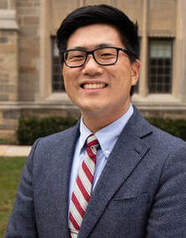


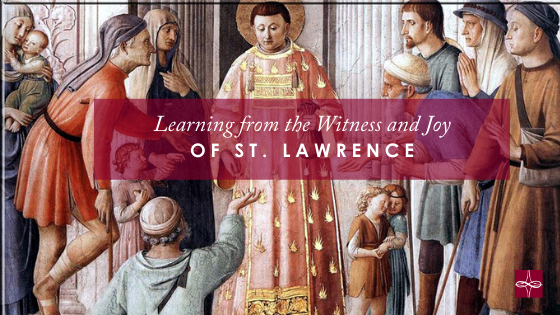
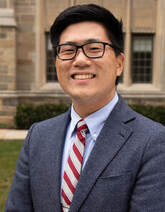
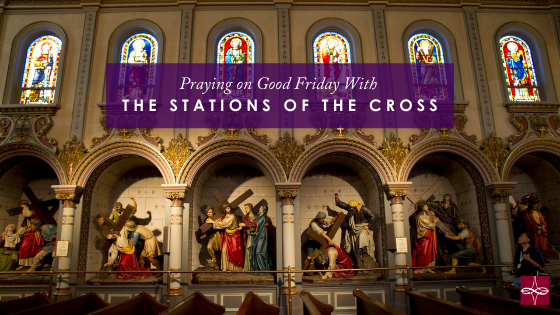

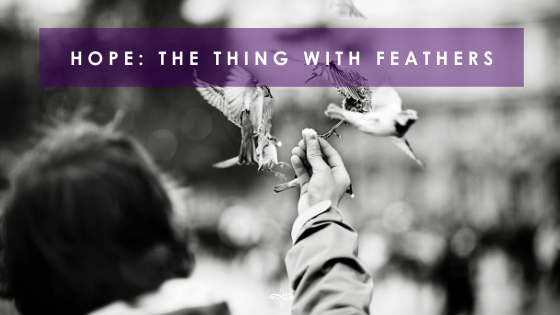
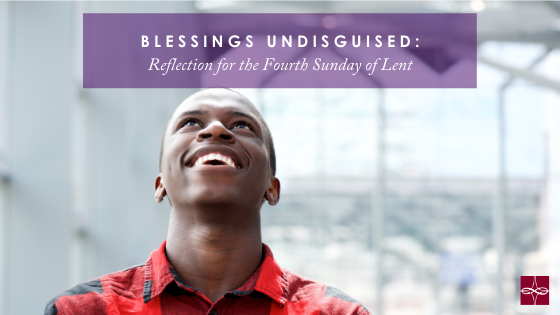

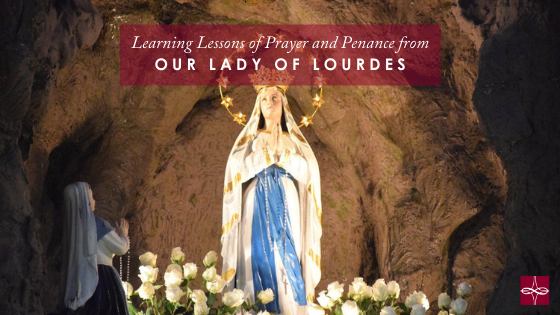

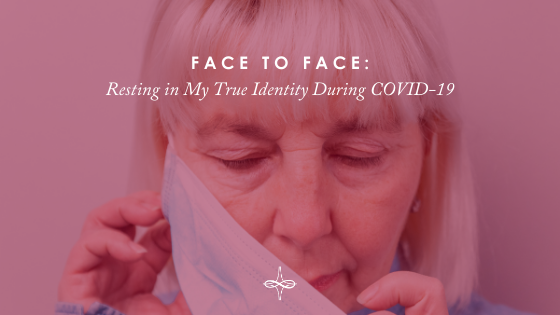

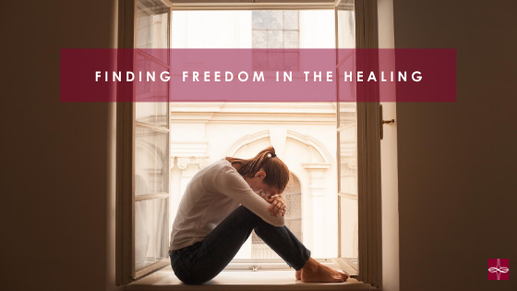

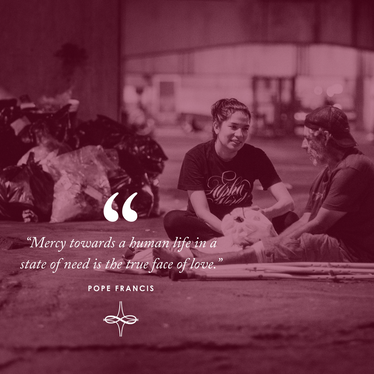
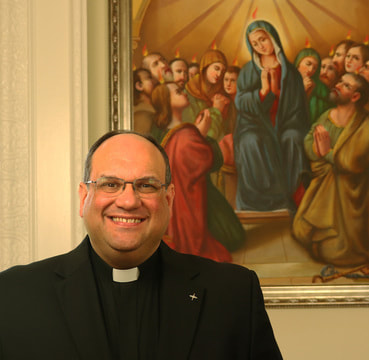
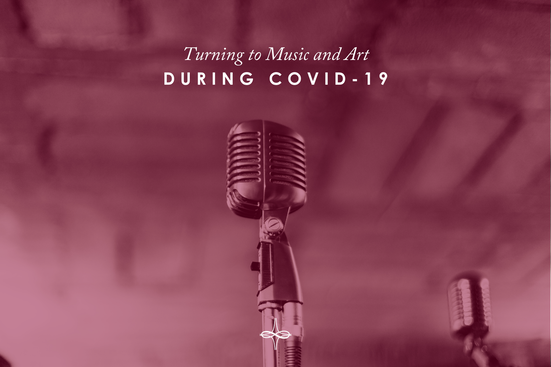

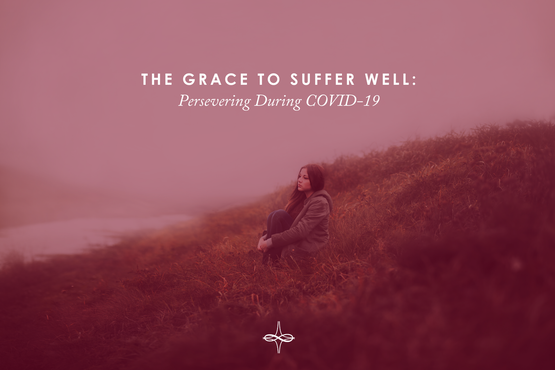



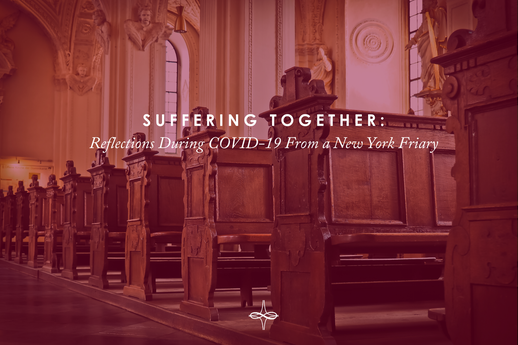
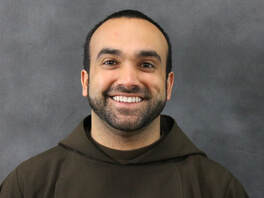
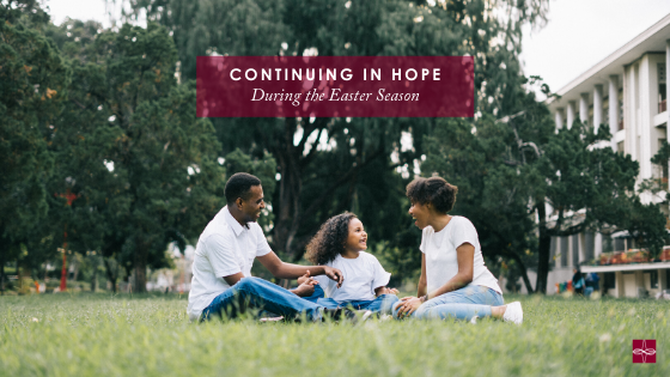
 RSS Feed
RSS Feed